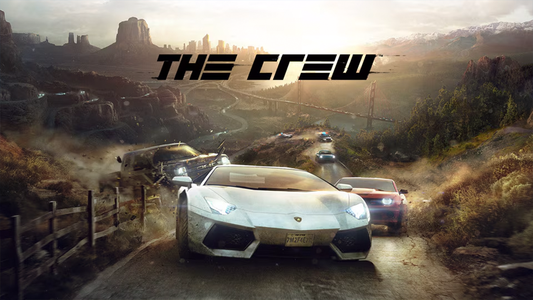This week, our partnership with game criticism site Critical Distance brings us picks from Kris Ligman on topics ranging from session highlights from IndieCade to how Alien: Isolation lives up to a legacy. Come On Back to the Five and Dime, IndieCade, IndieCade Speaking of IndieCade, if you didn't happen to attend, you missed out on some great talks! Over on Gamasutra, Bryant Francis has an excellent write-up on a well-received panel led by Shawn Alexander Allen (Treachery in Beatdown City) on issues of racism in tech and game development. Ian Bogost, he of the perpetual mic drop, spoke during IndieCade's Sunday microtalks session titled "Why ______ Matters" and has generously posted the full text of his talk online. Here's a sample, in which he deftly deconstructs the 'specialness' of games on the level of culture creation:
Whereas previously culture fought, won, and lost its battles at the scale of mass media -- think of Madonna and Bart Simpson and Murphy Brown -- now we do so in isolated pockets of niche media hobbyism. [Washington Post writer Alyssa] Rosenberg sees this as an unexpected victory. "Everyone can win the new culture wars," she declares, because "all stories have a chance to be told." The problem with Rosenberg's account is that fragmentation becomes Balkanization, which becomes recuperated into Libertarianism. Mutual hostility becomes "do what you want, just don't foist it on me." Pushed to its limits, all fandom becomes apartheid. [...] This state of affairs ought to chasten us. It ought to revise our understanding of the scope of the work before us. For example: if you want to fight for diversity in games, then absolutely you should fight to broaden representation among players, creators, and characters. But there's another kind of diversity: the diversity of our interests and our dispositions, of the company we keep and the influences that inspire us, the people and the groups and the industries and the materials that we contact. It has to do with having dealings enough with the world such that it is no longer possible to be seen as a parochial backwater not even worth opposing let alone supporting. We have become too comfortable here in games.
Lastly, Liz Ryerson has shared a revised version of her talk from the 'Influences' panel, in which she discusses the hard road to really waking up to what games can do and be:
this "new flesh" [from David Cronenberg’s Videodrome] is as another way of looking at digital devices as extension of our bodies - and embracing them as body parts we exercise full autonomy over. because if we don't, we can easily fall under the order of strong, powerful cultural programming that favors the aims of corporate ideology and the military-industrial complex. [...] the problem with fighting back against the tide of all this powerful cultural programming is we're often bad at envisioning and embracing this new flesh as a tool of progress amidst these vast corporate structures colonizing the internet. in his movie A Pervert's Guide to Ideology, Slavoj Zizek looks at the many apocalypse scenarios increasingly saturating popular media of the last ten years and asks: why is it so much easier for us to envision in the cultural consciousness a total apocalyptic collapse of society than it is to imagine a fairly minor-shift in our ways of understanding and constructing the reality of our situation? the answer is that is the logical endpoint of the ideological path we're following now. and there is something intensely painful about, in the midst of this, realizing our own bodily autonomy, and our ability to make even a subtle a shift in our understanding and construction of reality. it's a struggle, and it involves experiencing a lot of pain.
Class is In Session In Gamasutra's Member Blogs, Felipe Pepe salutes the 40th anniversary of Dungeons & Dragons -- which also marks the 40th anniversary of computer role-playing games based upon it. Independent critic Lulu Blue has been replaying the original Kid Icarus lately and remarks that it seems to exist during a weird transition point in Nintendo's 1980s design philosophy:
Maybe it wouldn't be until Kirby's Adventure that they'd finally let up and greenlight such a revolutionary idea such as "action game that isn't prohibitively difficult". While there were games like Dragon Quest before it, with similar staple ideas such as "a game anyone can beat****" they were often tacked on with a billion [contingency] asterisks that amounted to "a game anyone can beat by spending enough time repeating the same trivial task over and over again and smashing their head against a rock (and also pressing the A button in front of every rock)". Kirby was maybe the first game of Nintendo fame to not have that gotcha, but regardless of whether it was, Kid Icarus was NOT that game.
Meanwhile, in the newest installment of History Respawned, Bob Whitaker sits down with history professor Michelle Brock, an expert on early demonology, to discuss the cultural and religious underpinnings of Blizzard's Diablo franchise. One Does Not Simply... The new Middle-earth game, Shadow of Mordor, continues to inspire a lot of discussion. On her personal blog, Carolyn Petit notes the game does poorly by its women characters, killing off many and damseling a woman warrior. Over at Loser City, Jake Muncy digs deeper into the game's innovative enemy AI system and how its potential is squandered on the narrative's thematic contradictions:
No tags.





































